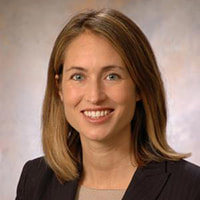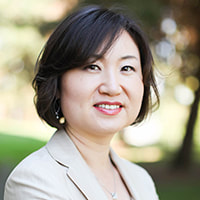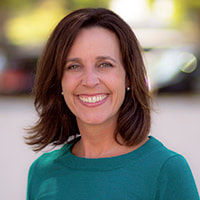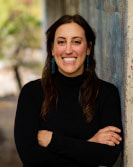Center Speakers
Listed below are the Center’s Colloquium speakers for the 2021 & 2022 academic year.

October 14, 2021
@ 12PM PST

Lindsey Richland Ph.D.
Professor / Associate Dean of Graduate Program/ School of Education/ UC Irvine
Lindsey Richland integrates psychological inquiry with a commitment to ecological validity, utilizing creative methodologies to examine children’s development of thinking and reasoning in home and schools, with new research examining the contributions of stress, identity threat, and pressure. She has strands of research including developmental, cognitive, and mathematics educational in focus.
October 28, 2021
@ 12PM PST

Ha Nguyen
Doctoral Student
Ha is interested in examining how students learn science, technology, engineering, and math in technology-rich environments. At UC Irvine, Ha is working on a research-practice partnership that employs linguistic scaffolding and inquiry-based pedagogies to promote computational thinking to elementary school students.
October 28, 2021
@ 12PM PST

Jacob Steiss
Doctoral Student
Jacob seeks to increase access to a quality education by researching and addressing the problems facing disadvantaged students, such as irrelevant and inaccessible curriculum and teacher preparedness that fails to respond to diverse students’ needs. He is interested in helping teachers enact culturally relevant pedagogies to create more equitable schools and citizens capable of entering into dialogue around problems of racial injustice and social inequality.
January 13, 2022
@ 12PM PST

Adriana Villavicencio Ph.D.
Assistant Professor/ School of Education/ UC Irvine
Dr. Villavicencio’s research focuses on K-12 educational policy and school practices that deepen or disrupt inequities for minoritized communities of students and families. In her previous position as deputy director of the Research Alliance in New York City, she led a longitudinal study of the Expanded Success Initiative, a precursor to My Brother’s Keeper and one of the country’s largest initiatives targeting Black and Latino male students.
January 27, 2022
@ 12PM PST

Sauro Civitillo Ph.D.
Research Associate and Postdoctoral Researcher/
Institute of Psychology/ University of Duisburg-Essen, Germany
Dr. Civitillio’s research focuses on Discrimination and Racism in the School Contexts, Educator’s Beliefs About Cultural Diversity, and Culturally Sensitive Approaches in the Classroom.
February 10, 2022
@ 12PM PST

Hosun Kang Ph.D.
Associate Professor/ School of Education/ UC Irvine
Dr. Kang’s research involves investigating the design and impact of innovations that support early career teachers’ learning of equitable science teaching. She also investigates youth’s engagement and identities in science with a particular focus on girls from non-dominant linguistic, cultural, and socioeconomic backgrounds.
February 10, 2022
@ 12PM PST

Jiwon Lee
Doctoral Student/ UC Irvine
Jiwon Lee is a Ph.D. candidate specializing in Learning, Teaching, Cognition, and Development (LTCD). She received her bachelor’s degree from the University of California, Berkeley and her master’s degree (Ed.M.) in Learning and Teaching from Harvard Graduate School of Education. She is interested in understanding the ways in which critical reflection supports teacher candidates to enact equitable practices in mathematics classrooms.
February 10, 2022
@ 12PM PST

Ella Rose
Undergraduate Student, UC Irvine
Ella Rose is the Co-President of Teachers of Tomorrow where she encourages new students, both those intending to become educators and those wishing to know more about education in general, to attend meetings and explore teaching as profession. She facilitates meetings which include special presentations, guest speakers, general information on current issues in education, and volunteer and job opportunities related to education.
February 24, 2022
@ 12PM PST

Andres Bustamante Ph.D.
Assistant Professor/ School of Education/ UC Irvine
Andres is an Assistant Professor at the University of California Irvine’s School of Education. He designs and implements play-based early childhood STEM interventions in places and spaces that children and families spend time (e.g., parks, school yards, grocery stores etc.). He maintains an intentional focus on translating rigorous science from the lab, into meaningful research in the classroom, and the community. Andres is invested in research that has practical implications for school and life success for the children and families that need it the most.
March 10, 2022
@ 12PM PST

Kelley Le Ed.D.
Program Director/ UCI Science Project
Dr. Le has been in the educational field for a decade as a high school science educator, instructional coach, consultant, and educational leader. She comes to UCISP from the UCI CalTeach Math & Science Program where she served as a coordinator, lecturer, and program designer. Her prior roles include being the CA science instructional specialist for a program authored by the Lawrence Hall of Science, curriculum consultant for the UCLA Curtis Center, and program designer and facilitator for the UCLA Science Project.
March 10, 2022
@ 12PM PST

Abigail Nicholson
Undergraduate Student/ Peer Academic Advisor/ UC Irvine
Abigail is an undergraduate student and peer academic advisor at UC Irvine. In her experience, UCI has a kind and welcoming atmosphere and she enjoys walking around campus, especially when all the trees are in bloom. Abigail’s time at UCI has brought her an abundance of amazing friends and experiences which has made her time as an Anteater that much more important!
March 10, 2022
@ 12PM PST

Jennifer Cao Ph.D.
Program Director/ UCI Science Project
Dr. Cao has been in the educational field for over 10 years as a middle school science teacher, educational technology coach, and educational leader. She is passionate with working in schools with learners from low socioeconomic statuses and ethnically diverse backgrounds. She also currently serves as an instructor and supervisor in the CalTeach program at University of California, Irvine (UCI). She is a proud UCI alumni and holds a B.S. in Biological Science as well as a Master of Art in Teaching. Jennifer earned her Ed.D. in Educational Leadership from Cal State University of Fullerton
April 7, 2022
@ 12PM PST

Gilberto Q. Conchas Ph.D.
Professor/ School of Education/ UC Irvine
Gil Conchas’ research unearths the triumphs of urban high school youth of color—African American, Vietnamese, and Mexican American— despite unequal public school processes. He challenges the stereotypes of students of color as under-performers and highlights successes. His research agenda, in schools and communities, has profound impact on the university and larger society. First, his research increases awareness of the experiences of underrepresented minorities in secondary schools. Second, his research provides content knowledge of the institutional factors that lead to school success instead of failure. Third, his research provides a better understanding of the steps necessary to diversify higher education institutions—and make sure that students are well equipped to graduate.
May 5, 2022
@ 12PM PST

Tara Barnhart Ph.D.
Assistant Professor/ College of Education/ Chapman University
Tara Barnhart is an Assistant Professor in the College of Education at Chapman University. After earning her BA in Biology and MA in Education from Whittier College, Tara spent the next 12 and a half years teaching science at Pioneer High School in Whittier, California. During her tenure there, she served as Curriculum Coordinator, WASC Coordinator, and Interim Department Chair. Tara earned her National Board Certification in Science for Early Adolescence and Young Adulthood in 2006 and completed her Ph.D in Education with an emphasis in learning, cognition, and development from the University of California at Irvine in 2016.
May 19, 2022
@ 12 PM PST

Elizabeth A vanEs Ph.D.
Professor/ Faculty Director of Teacher Education/
School of Education/ UC Irvine
Dr. van Es is interested in teacher thinking and learning and the design of pre-service teacher education and professional development. Her research is primarily concerned with how to support teachers’ developing their noticing practices for ambitious and responsive instructional practice. Much of her work uses video to help teachers develop a vision of ambitious instructional practice and to learn to attend to student thinking during instruction. She has recently expanded her research to examine teachers’ noticing for equity, focusing on how teachers’ commitments to equity inform their noticing and instructional practice.
June 2, 2022
@ 12PM PST

Juhn Ahn Ph.D.
Associate Professor/ School of Education/ UC Irvine
My core research interest is understanding how technology and information can enhance the way we learn and deliver education. I do this work in a few ways:
(1) I’m interested in enduring questions about broadening participation and creating more equitable learning pathways for learners in STEM fields. For example, how can new technologies and learning environments (games, social media etc.) be designed to capture the interest and engagement of more learners? And how can education systems and communities stitch together experiences to help young people identify more deeply with a domain (e.g., science)? (2) I develop research-practice partnerships (RPPs) with schools, teachers, and community-based organizations to ground the above research questions in projects that solve real problems of practice for partners, and also design rich contexts to develop scholarly knowledge.
Past Center Speakers
Listed below are the past Center Colloquium speakers for the 2020 & 2021 academic year.

October 22, 2020
@ 12PM PST

Erica Van Steenis Ph.D.
Postdoctoral Scholar/ UC Irvine
In her presentation, Erica will introduce herself and highlight her personal background, including what led her to a PhD and why she is pursuing a postdoc now. Then, she will discuss the broader area of research in which she has been involved throughout her masters and doctoral studies. Erica will introduce 3 projects/studies in which she has been involved in that communicates her research expertise and interdisciplinarily informed interest in schools, teachers, and youth workers — the Connected Learning Research Institute’s participatory study of youth interest; the Renee Crown Wellness Institute’s co-design study of teacher leadership, compassion and awareness; and her own dissertation study, in which she studied youth workers and youth worker professional development across three contexts and trajectories of expertise. Erica will highlight the ways in which her research approach includes community based and co-design processes that are motivated by 15 years of experience as a youth worker and teacher.
October 22, 2020
@ 12PM PST

Erica Van Steenis Ph.D.
Postdoctoral Scholar/ UC Irvine
Hamideh first introduces herself, talks about what led her to her Ph.D. program and postdoc position. Then she will talk about a common theme in her research which is the underrepresentation of racial and gender minorities in STEM and explains how she is perusing her research interest at UC Irvine with Dr. Kang. Hamideh will present on the NSF-CAREER project that she is working on and will explain her findings from the quantitative data analysis section of the project. She will specifically discuss how students’ complex thinking is being assessed in a physics class that was populated with underrepresented racial minorities.
November 19, 2020
@ 12PM PST

Susan Jurow Ph.D.
Associate Dean of Diversity, Equity and Community Engagement
Professor of Educational Psychology & Learning Sciences
University of Colorado, Boulder
Re-mediating designs for equity: Making commitments concrete
As designers working for equity, we must hold lightly onto our designs and be willing to let go of features that no longer serve our goals. We then need to develop principled revisions to our designs so that we can come closer to achieving our goals of equity in learning and teaching.
In this talk, I will share how my team and I responded to the critical perspectives of youth-partners at an afterschool club where elementary students worked with preservice teachers on STEM, literacy, and social justice projects. The design narrative, which is detailed in a recent publication (Jurow & Freeman, in press), is framed by activities in the months leading to and immediately following the 2016 presidential election. The vitriol of the campaign and how it traded on racist stereotypes of Mexicans, in particular, was felt viscerally by our youth-partners at the club who predominantly identified as Mexican. Given the youth’s interactions with the preservice teachers and the preservice teachers’ discomfort with the youth’s naming of race and racism as primary issues of concern, our team felt compelled to re-mediate how we were designing for equity in our program.
Design narratives that articulate the bases for changes and their outcomes can illuminate our shifting views on equity as a situated process. They can also serve as a way of documenting our learning and development as we strive to organize more just futures.
December 3, 2020
@ 12PM PST

Cathery Yeh Ph.D.
Assistant Professor/ Chapman University
Disrupting Normalcy in Mathematics Education
How can we disrupt ideologies around normalcy, difference, and identity that disable students in mathematics education?
There is wide agreement that when mathematics curriculum and pedagogy value and build on students’ cultural identities and ways of knowing, this not only strengthens mathematics understanding but also cultivates a sense of curiosity, wonder, and joy towards mathematics. While culturally sustaining pedagogies is now considered good teaching practice, it is not the dominant practice in the mathematics education of students with disabilities. In this talk, what I want us to consider here is when does a difference become a difference that counts? When does a difference become a disability, and how does disability intersect with race, language, and power in mathematics education? We will examine the social construction of race and ability, and how their mutually constitutive nature impacts mathematics teaching and learning. Developed from a three-year collaborative research project with teachers of Color serving students of Color classified with disabilities, an intersectional framework of culturally responsive and relational understanding of ability (detailed in a recent publication Yeh, Ellis, & Mahmood, 2020) will be shared with a case example of such an approach in classroom practice. Implications for research and teacher preparation will be discussed.
January 14, 2021
@ 12PM PST

Adriana Villavicencio Ph.D.
Assistant Professor/ UC Irvine
“You can’t close your door here:” Leveraging teacher collaboration to improve outcomes for immigrant English Learners
In this paper, we examine the role of teacher collaboration in a school that produces positive academic outcomes for immigrant, English Learners (ELs). We also draw on a comparative case study of another school in the same district that has not achieved the same level of success. We illustrate how the high-performing site supports and implements deep and sustained collaboration, while the professional conditions of the comparison site result in fragmentation and the isolation of EL teachers. In doing so, we provide qualitative insight into how schools can foster authentic teacher learning and collective responsibility for EL students.
January 28, 2021
@ 12PM PST

Jamy Stillman Ph.D.
Associate Professor/ Equity, Bilingualism & Literacy/
University of Colorado, Boulder
In pursuit of justice in the education of teacher educators: The use of transformative teacher education pedagogies
This conversation will raise questions about teacher educators as linchpins for making teacher education more equity- and community-centered, and about the kinds of learning opportunities teacher educators need in order to fulfill this charge. The talk will argue that equity-and justice-oriented transformation in teacher education depends on the deliberate preparation of teacher educators—an enterprise that is currently understudied, under-theorized and under-practiced. Drawing on a three year qualitative study, it will also underscore the particular promises of critical pedagogies, like Freirean Culture Circles and Boalian Theatre of the Oppressed, for preparing equity- and justice-oriented teacher educators.
February 11, 2021
@ 12PM PST

Christopher Wegemer
Doctoral Candidate/ UC Irvine
Civic engagement of marginalized youth: Friendship networks and motivation
Grounded in a long-term research-practice partnership, my dissertation investigates the role of social networks in the civic engagement of adolescents at a high school that serves primarily low-income Latinx students. First, I develop a novel model of youth civic motivation grounded in expectancy-value theory. Then, I apply longitudinal social network analysis techniques to distinguish between the effects of friendship formation and motivational antecedents on civic engagement. Through an asset-based approach that acknowledges agentic decisions regarding civic participation rather than framing behavior in terms of deficiency, I seek to understand psychosocial predictors of civic engagement for youth who are underrepresented in both research and policy. I aim to provide novel insight into the diverse manifestations of civic engagement in ways that inform practice, which I believe is especially important as our youth confront an increasingly contentious sociopolitical landscape.
February 11, 2021
@ 12PM PST

Carlos Sandoval
Doctoral Candidate/ UC Irvine
Understanding the Practices and Processes of Doing Networked Improvement Science in a Teacher Preparation Network
This study focuses on examining how networked improvement communities (NICs) are enacted using a NIC run by the California Teacher Education Research and Improvement Network. The work of performing NICs is comprised of micropolitics and power relations that shape what improvement efforts focus on, what aims they seek to accomplish, and how they attempt to accomplish their aims. I seek to unveil these dynamics to understand how NICs operate and in what ways the processes can be improved, particularly for advancing equity and social justice.
February 25, 2021
@ 12PM PST

Rich Milner Ph.D.
Cornelius Vanderbilt Chair of Education/ Department of Teaching and Learning/ Vanderbilt University
Understanding the Practices and Processes of Doing Networked Improvement Science in a Teacher Preparation Network
Students tend to succeed when mechanisms are in place to support them. Opportunity gaps, particularly for Black and Brown students, those who live below the poverty line, Muslim students, those whose first language is not English, and those who have a learning disability can result in students’ lack of academic and social success. Moreover, gaps in opportunity can result in office referral, suspension and expulsion hindering students’ learning opportunities and contributing to what has been called a school-to-prison pipeline. With an explicit focus on disrupting inequity inside and outside of education, this talk centers a “return” to practice through Opportunity-Centered Teaching as we build mechanisms to support educators, communities, families, and parents in the fight for social justice.
March 11, 2021
@ 12PM PST


Elizabeth vanEs Ph.D.
Professor/ School of Education/ UC Irvine
Nicole Gilbertson Ph.D.
Director/ UCI Teacher Academy/ UC Irvine
Introducing the UCI Teacher Academy
In this talk, we will share the vision and purpose of the UCI Teacher Academy. With support from the SchoolsFirst Credit Union, the UCI Teacher Academy was launched as part of the school’s community engagement initiatives to develop a context to support teacher and school leader professional learning. We center on teaching as the site for improvement of schooling and students’ opportunities to learn. The vision of the academy is to provide a context for teachers to collaborate, inspire and lead others in transforming instructional practice. By leveraging both practice and research to inform co-designed experiences for teachers and school leaders, we aim to improve educational opportunities and outcomes for K12 students and transform teaching and learning. We will share the structure of the Teacher Academy, examples of the kinds of professional learning activities offered through the Teacher Academy, and opportunities for the UCI Teacher Academy becoming a site for research.
April 8, 2021
@ 12PM PST

Juan Gaytan
Doctoral Candidate/ School of Education/ UC Irvine
The Latinx Male Teacher Pipeline
This presentation will discuss the partnership between a community-based effort to increase teacher diversity and the educational research that informs and supports that effort. Juan’s dissertation research, which hopes to offer an in-depth look at the Latinx Male Teacher Pipeline, aims to develop recruitment and retention strategies of Latinx men, and other marginalized groups, in the teaching profession. A mission shared by Project SUPPORT at CSU San Marcos. This presentation will illustrate the importance of finding community partners that can help research reach the community it is intended to serve.
April 22, 2021
@ 12PM PST

Josh Radinsky Ph.D.
Associate Professor/ College of Education/ University of Illinois, Chicago
Relational data literacy in the era of the data deluge
How do people learn to reason with data? Going beyond a narrow, computational understanding of data and what we do with it, recent scholarship on representational practices, spatiality and mobility has helped us see the ways data are mobilized and brought into relationships with ourselves and the world. Critical data literacy work has illustrated how the production and use of data are part of larger practices of producing the social world, including the production of people and spaces that are raced, gendered and social-classed. Learning scientists have called for a relational understanding of data literacy that accounts for the ways data are implicated in our lives, not only in STEM classrooms or science laboratories, but in many spheres of private, public, and educational life. In this talk I will illustrate four kinds of data narratives – stories we tell with and about data – to develop the idea of relational data literacy: Narrating ourselves working with data, Animating a data representation, Incorporating data into social narratives, and Narrating ourselves into a data-represented world.
Would you like to present?
Fill out the contact form and our team will be in contact with you.